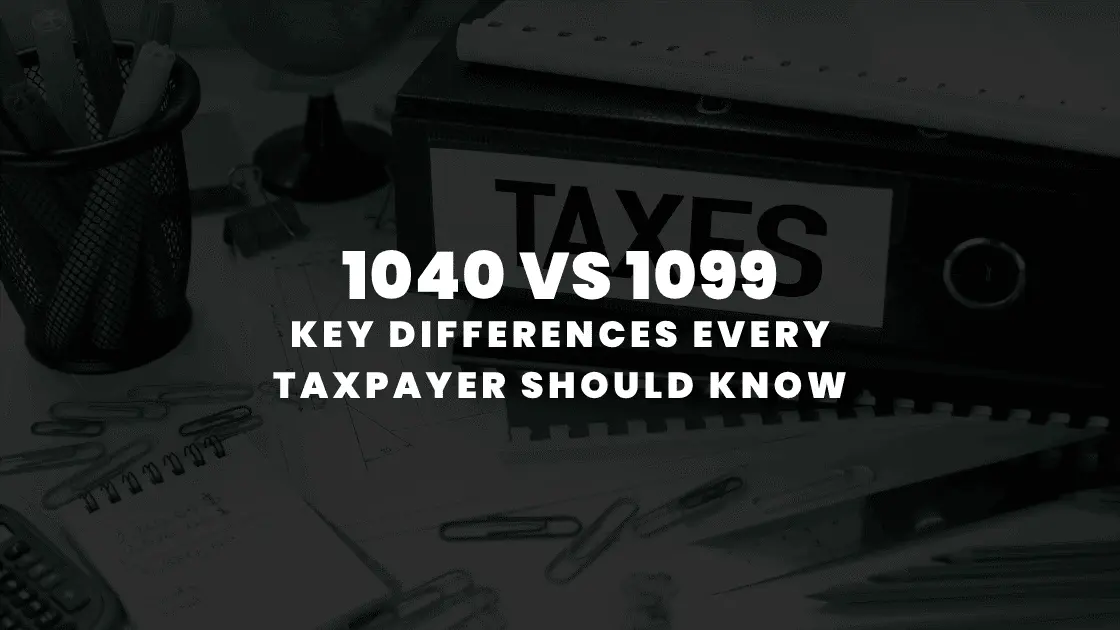February 21 2023 | By Farwah Jafri | 4 minutes Read

Taxpayers can maximize their returns in multiple ways. There are numerous tax credits and deductions, like the IRS Mileage Rate 2023, to help ease the tax burden on self-employed and business individuals. However, most seldom capitalize upon these opportunities and pay more than they should.
In particular, the IRS Mileage Rate is a deduction that could help self-employed and business owners save thousands in taxes. The IRS issues a standard mileage rate to give taxpayers who commute excessively around the year for work purposes relief. The rate varies according to inflation and fuel costs and helps taxpayers calculate the deductible costs applicable to work travel.
Moreover, the tax deduction is not only for those who drive gasoline cars but also applies to business individuals and self-employed taxpayers who drive electric, diesel, or hybrid vehicles.
See Also: What Does IRS Say About Depreciable & Non-Depreciable Assets
So, without further ado, let’s explore the IRS Mileage Rate 2023 to calculate the dollars saved.
For those filing their 2022 tax return, it is essential to factor in all credit opportunities and deductions. In the last tax year, gasoline prices varied drastically, rising with inflation. The changes were so drastic that the IRS had to force a mid-year IRS mileage rate alteration, a rare occurrence, and the last instance dates back to 2011. In 2022, for the first six months, the rate was 58.5 cents per mile and 62.5 for the next six.
According to IRS Commissioner Chuck Rettig, the rise in the IRS mileage rate is due to the rapid increase in gasoline prices. He went on to say that the decision is intended to help those who travel for business overcome the difficulties they faced earlier this year as a result of rising fuel prices.
The IRS Mileage Rate tax deduction is for all self-employed taxpayers or those who run their businesses. More so, employees with impairment-related issues and reservists in Armed Forces can also claim this deduction to maximize tax returns.
Claiming this deduction requires sharing a record of miles covered around the year for business travel and multiplying it by the IRS Standard Mileage Rate. To summarize, travel from January 1, 2022 to June 30, 2022 will cost 0.58 cents per mile, and travel from July 1, 2022 to December 31, 2022 will cost 62.5 cents per mile.
The deduction applies to Schedule C, Part II, and Line 9. Moreover, it is also required to provide further details in Part IV.
The best way to record mileage is to keep a logbook. A book helps match the numbers and can be presented as a record if needed. Remember, the IRS requires and can request records for up to three previous seasons.
Business travel is not the only domain where the IRS mileage rate tax deduction applies. It is also claimable for medical and charity travel. The IRS standard rate for the former stood at 18 cents for the first half and 22 cents for the next six months. Meanwhile, the standard IRS mileage rate for travel in 2023 remained at 14 cents per mile throughout the year.
Yes! The IRS has announced the new mileage rate for the next tax season. The new rate is effective January 1st and is 65.5 cents per mile. Remember, this is irrelevant for 2022 tax returns and will only become a factor in the next tax season.
No, the deduction opportunity is strictly for business travel. According to the 2017 Tax Cuts and Job Cuts, no taxpayer can claim Mileage Rate deductions for regular travel expenses. However, a business could use these to reimburse employees for travel for business-related purposes. This deduction not only helps save thousands but could also help you give back out-of-pocket fuel expenses to employees and earn their loyalty.
See Also: A Guide To IRS Form 720
The tax season doesn’t have to be as stressful as we think. The IRS does charge a high tax but also offers opportunities to ease the burden. Hire tax experts who know their way around the tax code to maximize your returns in the current tax season and stay one step ahead in the next.
Subscribe for business tips, tax updates, financial fundamentals and more.
MORE BLOGS

Running a small business means every dollar matters. You work hard to earn revenue, manage expenses, and grow steadily, yet tax time often feels like money […]
Learn More →
Tax season can be overwhelming, especially when you’re staring at multiple forms with numbers instead of names. Two of the most common, and often misunderstood, are […]
Learn More →
Working extra hours can feel rewarding, after all you’re putting in more time, showing dedication, and earning more money. But when you look at your paycheck, […]
Learn More →